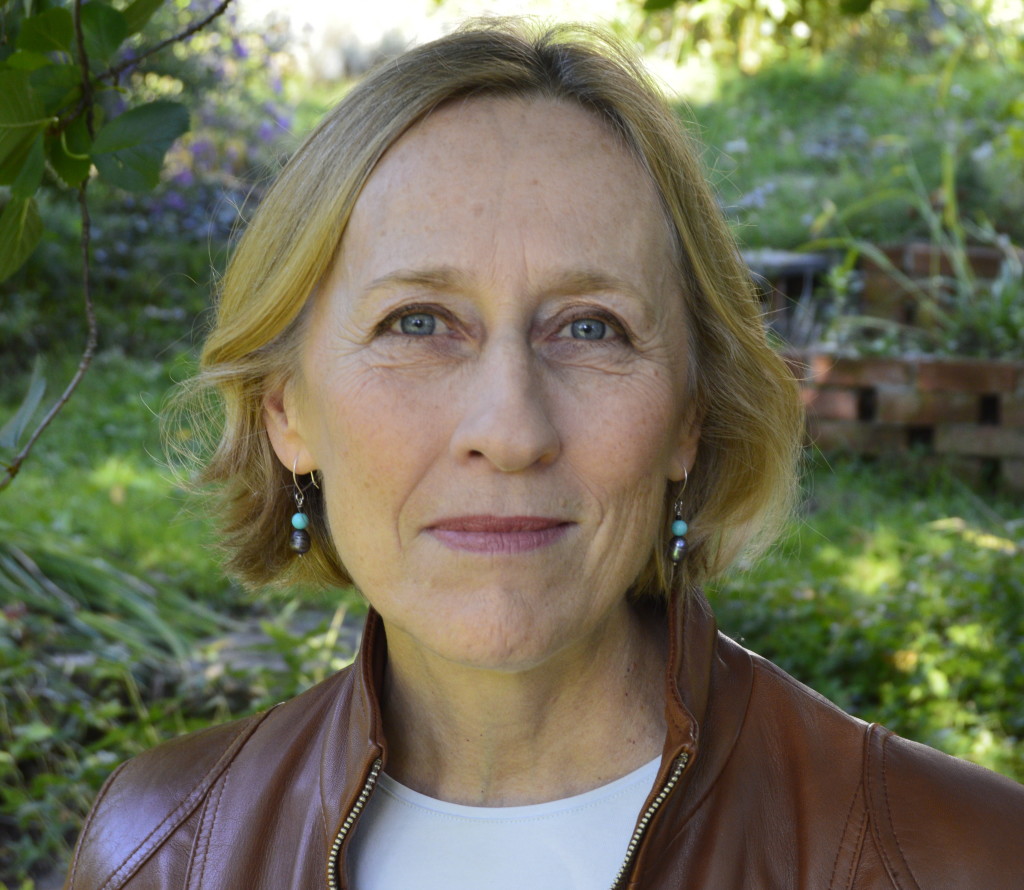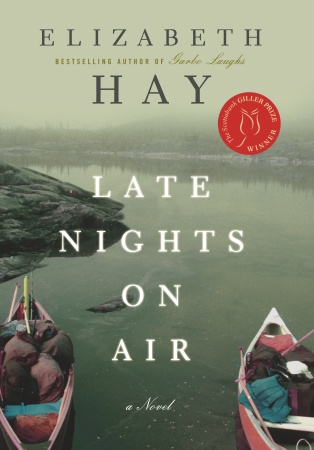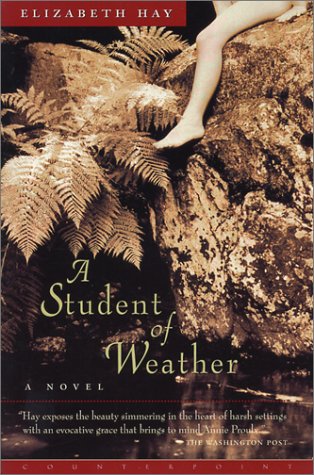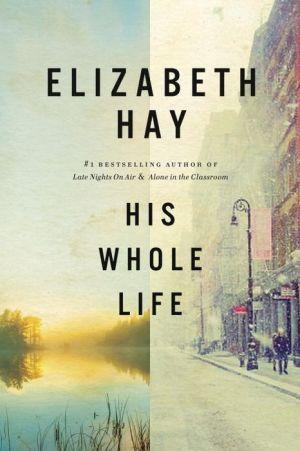Elizabeth Hay has a magical voice. A voice fit for storytelling. A voice tailor-made for radio. Hay has five novels to her name. Her novel “Late Nights in the Air” won the Giller Prize in 2007. The novel is an account of her time at CBC as a radio journalist. This year Hay published a new novel titled “His Whole Life”. It is set in the high-strung time of Canadian history when Quebec was considering an exit from the country. Elizabeth comes from such a place of humility that you forget you are talking to one of the most celebrated writers in the country. She talked to me about what stirs her to write, her glorious days at the CBC, Canadian politics and everything in between.
You have a background in radio. What kind of journalism did you do then? What stories did you cover?
When I started in Yellowknife in the 1970s I was what they called an Announce/Operator. It was a position that existed only in the Northern Service. The announcer also operated her own equipment. I hosted radio shows like “Radio Noon” and would interview people in Yellowknife and in the Northwest Territories. That is how I began really, as an interviewer. Then in Winnipeg I worked in the “Morning Show” and again interviewed people about everything from the arts to politics. After that I worked for “Sunday Morning” which was a radio documentary program. I was a field producer on it, which meant that I went out into the field and gathered material to put together documentaries. And again these covered everything from arts to politics.
After telling other people’s stories did you come to a point where you felt like you needed to tell your own?
Well, I needed to tell stories. Whether they were my own or someone else’s was not so much the issue as figuring out how to write an interesting story. I started out as a poet when I was about 16. Then in my early twenties, living in Yellowknife, I was really itchy to write stories. I didn’t know how to tell a story. Didn’t believe I could tell a story! It was a long apprenticeship, in which radio at first seemed to hinder me and then helped me. Hinder me at first because I felt schizophrenic trying to write for radio. It seemed like a very particular kind of writing. Radio writing was very different from the writing I did on my own. It took me a long time to realise that what made good radio writing, which is economy, being direct, and telling a story, all actually made for good writing of any kind.
You said you didn’t believe you could write a novel. Is that because there were no role models around you?
Oh no it had nothing to do with that. I was a big reader. If you are a writer your role models are simply the authors of the books you read. You don’t have to meet them. You don’t have to interact with them. You just have to read their books. I just didn’t think I had the kind of imagination that was required. I don’t think it is uncommon for a person to be full of self-doubt. Especially when starting out. When I began I had no intention of writing novels. I was just trying to write short stories and having enough difficulty doing that. The fact that I have actually turned into a novelist and written five novels is pretty much of a surprise.
You have travelled and moved home many times. Do you think travel and experiences are essential in creating a new voice? Are these the stories worth telling?
I think that each writer finds their own path, so travel isn’t essential for every writer. But it seemed essential to me. I had a great yearning to see different parts of the world with my own eyes. I liked to write about the places I saw in my notebooks. I am a big notebook user. I take notes wherever I go. I am always interested in the real world. The more you notice, the more you expand as a person, the more you have to draw upon when you write.
At the time, as a woman, was it hard to reject the traditional roles expected of you and to travel and follow your career instead? How did those expectations not dog you down?
The 1970s were much less traditional than the times are now. The 1970s were a very open and exciting time. There seemed to be lots of possibilities for everybody, including women. When I started in radio stations in Yellowknife, it is true that there was only one female announcer, but quickly thereafter more women were hired. Before driving up to Yellowknife, I was living in BC. It was at the moment when women were being hired in sawmills. I got this job in a sawmill and worked there for about 5 weeks. Just long enough to earn enough money to drive up to Yellowknife. Also in terms of travelling, everybody in those days was hitchhiking, including women. I am not saying it wasn’t dangerous. I think it was. But there was a great restlessness! Women were an enormous part of that. Feminism was blossoming.
The world was full of possibilities. There were more jobs for people. You didn’t have to earn so much money in order to pay rent. I think it is harder now when the price of living is so much higher.
It was almost like the environment and atmosphere at the time were more supportive for ambitious career women.
Yes. But to tell you the truth I didn’t think of myself as a big career woman. I thought of myself as somebody who wanted to write. Who was going to be a writer. Who was earning a living in order to put a roof over her head. My real interest was writing. I didn’t think of myself as becoming a commercial best seller. I just thought I would quietly find ways to earn money and that over time I would get better as a writer.
You wrote “A Student of Weather” a lot later in your career. In 2000. Were you working on it for a long time or were you, as you mentioned in your bio, “self-doubting”?
“A Student of Weather” was my first novel but it was my fifth book. So I had written some earlier books. The book right before “A Student of Weather” was a collection of short stories called “Small Change”. That did very well in terms of being nominated for awards. Before “Small Change” there were three books that were loosely creative non-fiction and stories. All of that was me trying to learn how to write.
You have written many novels since 2000. Can you tell us how you have changed as a writer since “A Student of Weather” to “His Whole Life?” Have your habits changed?
Every book is its own challenge, as every writer will tell you. You finish a book and the next one is as hard to write as the one before, if not harder. It is not as if anything gets easier. It is really just a question of being willing to do the work. How has my writing changed? Not sure that I can answer that very well. I hope that it reaches deeper, that it goes deeper into the human condition. Deeper into relationships between people, deeper into a connection with the physical world.
Out of all your books which book was the most challenging for you to write?
“A Student of Weather” took a lot out of me. It was my first novel. I had no idea how much work it was to write a novel. No idea. And because it was my first I had no confidence. It was long and hard. I remember feeling as if I was writing a three-month exam for which I hadn’t studied. It was tough. But then there were rewarding, exhilarating, ecstatic moments when things came together!
You are a prominent Canadian literary figure. What do you think Canadian writers bring to the world of literature? Is the Canadian perspective unique in some way?
I am never too sure how to answer that question. I think there is such an abundance of writers in Canada and we all come at our writing differently. There is a large variety and richness in the literary output of the country. I just happen to set most of my books in Canada and engage questions of Canadian history.
What about Canadian writers’ fondness for Canadian landscapes?
There are Canadian writers who have a deep feeling for landscapes and I would consider myself one of them actually. But there are so many writers who have an urban focus or with different kinds of concerns. My writing tends to start with something personal and it is rooted in the past. I am also very interested in how the past aligns with the present. I don’t write historical fiction, I write about how the past weaves its way into our present lives. I am really interested in how we connect, or fail to connect, with the larger world. Because I’m a Canadian writer, because I start with something personal, my starting point is usually in Canada. My effort is to connect with the larger world and by the larger world I mean the natural world. The world of thought and emotion.
When I was living in Mexico, I brought together early Canadian history with what I was seeing all around me in Mexico. I was still writing personal stories. You could say that two cultures were meeting there and as a result the book had a Mexican-Canadian flavour. But above all Canadian. I feel that I have a pretty Northern mentality. Restrained. Economical. And direct.
What do you most enjoy about writing?
Oh I love being at my desk. I love having something to work on. I love being in a quiet house. Nobody else there. I love being up when it is still dark. Just me, my lamp, my desk, my pad of paper, my pen, nothing gives me greater pleasure. Sometimes things flow but more often than not they don’t, and it becomes a question of working at things. Working with the bits and pieces that you’ve got and trying to find a shape and so on. The reason I like it when it is dark and to be up so early, is that the rest of the world is shut out and it is not demanding things of me. I am just there communing with whatever I happen to be reading and with my own thoughts.
What do you like least about the writing process?
I don’t like the panic I feel. I don’t like how tremendously nervous I get when trying to get a piece of writing to work. I don’t like that worried panicky feeling that I’m a shitty writer.
That still comes to you?!
All the time! All the time! Good or bad, it is unavoidable. I know that to be the case. When I’m working on something I don’t sleep very well too. I get tired out. When I’m trying to write something and I find that I’m not sleeping, I just stay up and work. There is a nervous energy that flows in then. It is part of the creative process. I try not to get overwrought about it. I expect I’m rather cranky and difficult to be around when it happens.
What do you do to stay inspired?
Reading would be the main thing. I don’t seem to want to travel much anymore. Who likes airports, right? I hate airports. The best thing to read for me, when I’m wanting to write, is poetry. Early in the morning when it is still dark, I start to read poetry and my own thoughts begin to flow.
Can you tell us about “His Whole Life”? How did it come to you?
The novel moves between New York City and a lake in Eastern Ontario. It happens during the 1990s when the independence issues in Quebec were at the fore. The novel covers the period of the 1995 referendum. There is Jim, the American boy, who has a Canadian mother Nan, and an American father George. Jim has a cross border identity. Every summer, at the end of August, this family of three travels up to a lake in Ontario to see the Canadian side of the family. The referendum is very much in the air and very much on Nan’s mind, in particular. She is worried about what is going to happen to her country. She has an old, old friend Lulu, who supports Quebec separatism. The arguments flare up between Nan and Lulu and test their friendship. I set the book at the time of the 1995 referendum because it was one of the most dramatic moments in the history of the country. Passions were really inflamed and the stakes were very high at that time. People realised in a very unusual way just how much they cared about their country.
With the election in the air right now do you think we are anywhere close to that kind of passion?
I am utterly gripped by this election. I wouldn’t say I am losing sleep over it but when I am awake in the middle of the night, I certainly think about it. I think the outcome of this election is supremely important. But you know, I love politics. I love electoral politics, and these federal elections, in particular. I follow them with real fascination.
Having worked at CBC Radio at the start of your career, did their recent sexual harassment scandal surprise you? Is it still very difficult for female journalists today?
Well, I was disgusted. I think we are living in very difficult times. There is this panicky effort to get audiences and the CBC has fallen prey to a celebrity driven culture. They forget to respect their listenership. I believe so strongly in public radio and I believe so strongly in the CBC. But I also believe it needs housecleaning. I believe in culture and the importance of culture. I am so hopeful that this election will bring us a government that is more sympathetic to Canadian culture than the Harper government has been.
In a workplace you will always have power politics and sexual politics. You hope to have, in government, in the CBC and in any institution, someone who respects everybody, men and women. Someone who will set the tone. When that happens the atmosphere changes and egregious abuses of power by authority figures become less likely. I think I am a feminist and there has been wonderful progress for women. I am so glad to be living now and not a 100 years ago. I have been very lucky and blessed with people who help and support me. I have a daughter in her late twenties and I know how hard it is to be a woman out there. Fighting for one’s self-respect and fighting to be respected is an ongoing battle for women.
What would your advice be to young writers? How can they build confidence?
Just remember that it is hard for everybody. At a certain point you will think anything you write is a piece of garbage. And at another point you will believe that what you are writing is the most brilliant thing in the world. Neither is true. It is not the most brilliant thing in the world and it probably has more virtue than a piece of garbage. It is neither as good as you think nor as bad as you fear. You just have to persevere and keep working on your material!
To attend the events that Elizabeth will be appearing at and to check out all the other fun stuff happening at the Writer’s Fest visit their official website.
-Prachi Kamble




